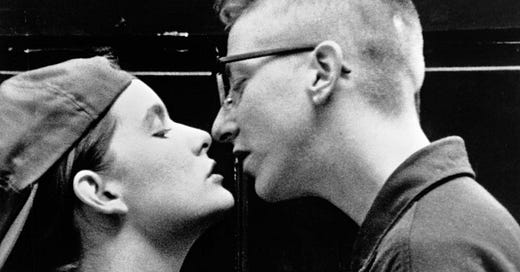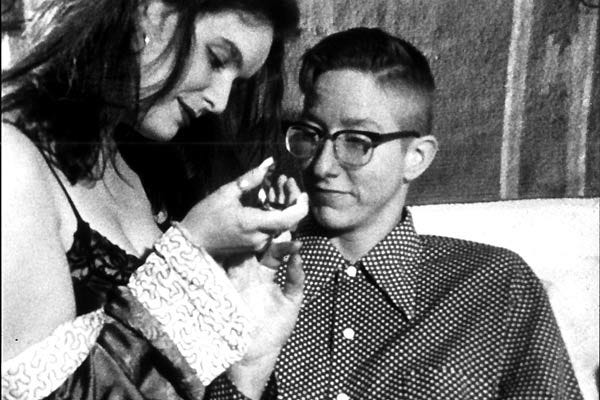Directed: Rose Troche
Written: Rose Troche and Guinevere Turner
Those of us who saw Go Fish during the original cinema release were glued to our seats for 85 straight (ahem) minutes. It was an amazing piece of cinema, not because of how it was executed, but the mere fact that it was achieved. This was the film that made later, high profile films like Bound possible. It proved that the world was ready to see lesbians on film in more than just coming-out stories.
Seeing the film now gives me a completely different feeling. It's a nostalgic experience. It was a grass roots effort that came not just from the minds of Guinevere Turner and Rose Troche, but from the hearts and wallets of the Chicago lesbian community in which they lived. Everyone on that film pretty much had a real job. Migdalia Melendez (Evy) had three. It was a labour of love and audiences loved it.
That being said, the film could be seen as having very little to offer the lesbian of today. What just a few years ago was revolutionary in cinemas could now been seen as cliched and stereotyped. There's a lot of butch-femme dichotomy which most today would see as outdated. There's a scene with women harassing another lesbian for sleeping with a man that some have called persecutorial and ridiculous, as if the condemnation of lesbians who sleep with men never happens today. The acting is sub-standard (not one of the performers was a trained or professional actor) and the ideas expressed somewhat lacking in the political fire we've come to expect from more recent lesbian film offerings.
That said, there is a line in this film that will always be one of my favourites. Ely (V.S Brodie) comments that queer filmmakers are expected to represent everyone in the gay community, to say things that are true for all gays and lesbians, when all they are really doing is showing what they see in our community. It is a lot to ask for one filmmaker to say something that reaches every lesbian who will ever watch this film. Despite the hype this film has gotten over the years, you have to remember that no film will ever do that.
I've seen 50 year old lesbians watch this film and call it indulgent and crass. I've seen 18 year olds watch it who called it old and unrepresentative (I mean, who makes films in black and white anymore?) On the flip side, I've seen women of all ages watch and be just as affected by it now as I was back then. I saw one woman get so passionate about it that she shaved off her long hair the next day (you have to watch it to understand the relevance of that).
I was 20 years old when I first saw Go Fish. I had been out for two years and I lived in a small city where what dyke community there was seemed limited. I walked into my local art house cinema and watched this film at a fundraiser for a local socialist political group. I was still pretty naive about gay life, but I was (and still am) passionate about film.
Watching Go Fish was the first time I had ever seen that side of myself on the big screen. It was the first time I felt truly represented. I felt like sobbing, and clapping. It taught me just how important it was to me to feel represented in this medium I love so much. Go Fish began a love affair I have with lesbian/queer cinema that will last my whole life.
It is difficult for first time viewers to see it in context with the time in which it was made. In some ways gay cinema is like technology - if we were magically transported back in time and forced to live then with the knowledge we have now, we would scream in frustration. Lesbian cinema has come a long way, but we might still be watching nothing but tortured coming out stories and lesbian vampire films if it weren't for the vision of the women who made this film and others like it.
Every lesbian interested in the history of our movement and our cinema should see this film. I know that some of it leaves me shaking my head today, especially the little arty flashes in between scenes that never made any sense. There are also some parts that still make me smile and nod, as if Guin Turner and Rose Troche had been speaking directly to me and about my life.
It was never the technical prowess that made this film magical, it was the love behind it. Like it or hate it, you can't deny how important it was.





